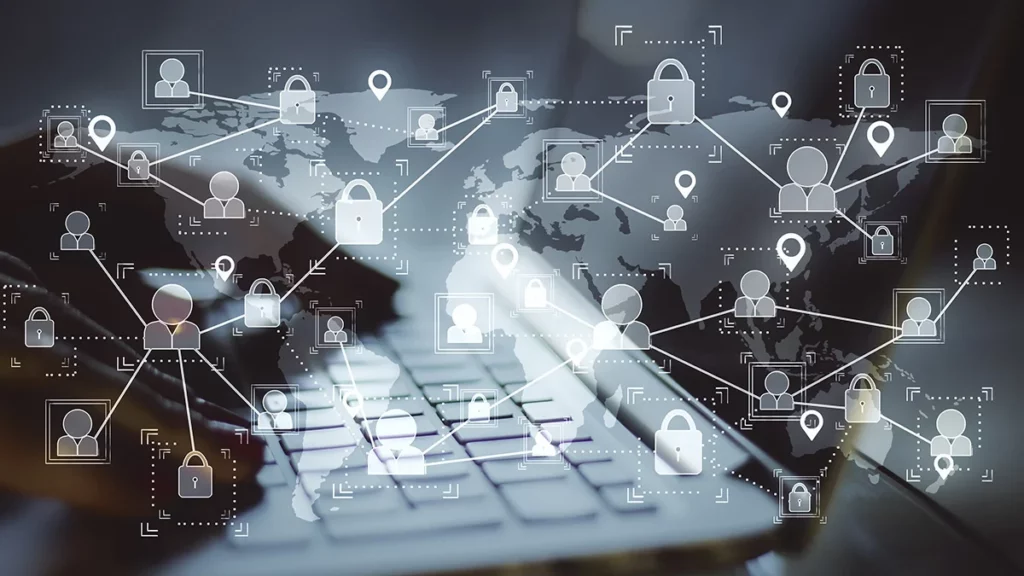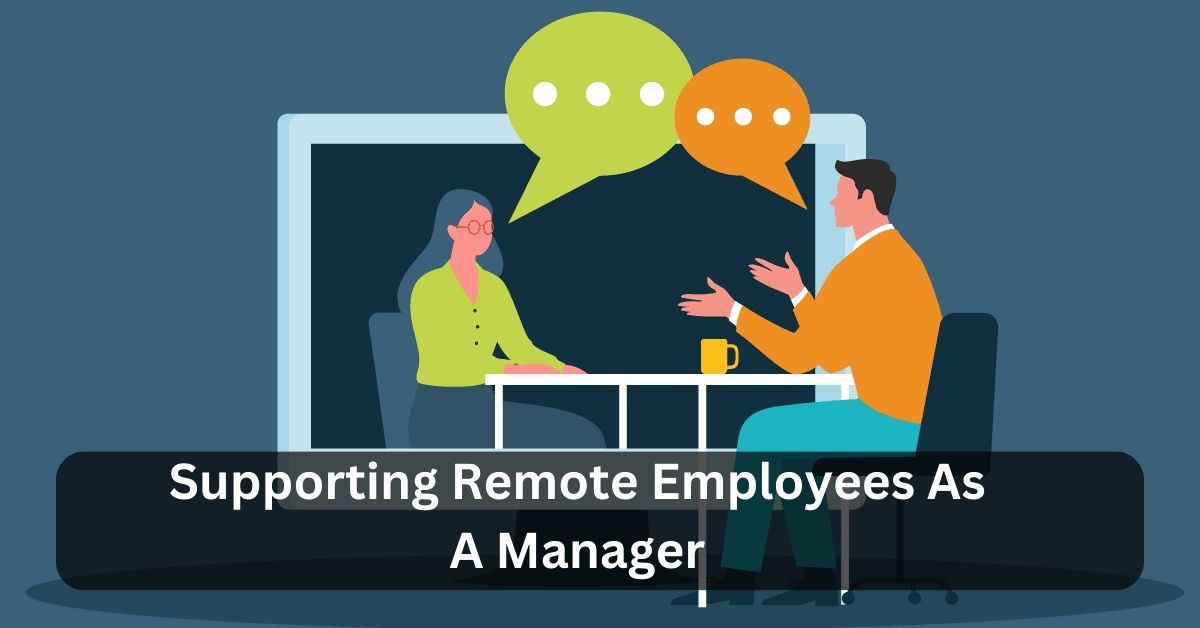Supporting Remote Employees As A Manager – Click here for a burst of inspiration!
The work landscape is evolving, and with the rise of remote work, managers are tasked with a new set of responsibilities. Supporting remote employees goes beyond overseeing tasks; it involves creating an environment that fosters productivity, well-being, and a sense of belonging.
Supporting remote employees as a manager involves understanding their unique needs, fostering effective communication, setting clear expectations, providing necessary resources, promoting work-life balance, and building team culture virtually.
This article will explore various strategies for managers to support their remote teams effectively.
Understanding Remote Employee Needs – Explore It Out!
Remote employees face unique challenges, from isolation to potential communication barriers. Managers must understand these needs and empathize with their team members’ situations outside the traditional office setting.

Understanding remote employee needs means recognizing the challenges and requirements unique to individuals working outside a traditional office setting. It involves empathizing with the potential isolation, communication barriers, and technology limitations they may face.
Managers need to be aware of these factors to provide practical support, fostering an environment that meets the distinct needs of remote workers. This understanding forms the foundation for strategies that enhance communication, promote work-life balance, and ensure remote employees have the necessary resources for success in their roles.
Understanding remote employee needs is essential for creating a supportive and inclusive remote work environment.
Clear Communication Strategies – Discover More Right Away!
Practical remote work relies on vital communication. Managers need to employ effective communication strategies, utilizing tools such as video conferencing, messaging platforms, and project management software to bridge the gap created by physical distance.

1. Setting Clear Expectations:
Setting clear expectations is crucial for remote teams. Defining roles, responsibilities, and expectations helps remote employees understand what is required and reduces the chances of misunderstandings.
2. MProviding Adequate Resources:
Remote employees should have access to the right tools and resources. This includes reliable technology, software, and equipment necessary for their roles, ensuring they can perform their tasks efficiently.
3. Encouraging Work-Life Balance:
Remote work presents a challenge as it can blur the boundaries between one’s professional and personal life. Managers are vital in promoting a healthy work-life balance, respecting boundaries, and preventing burnout among remote team members.
Building a Virtual Team Culture – Let’s Learn!
Fostering a sense of belonging and camaraderie is essential for remote teams. Managers should actively work to build a virtual team culture through regular check-ins, team-building activities, and creating opportunities for social interaction.

Building a virtual team culture means creating a sense of unity, camaraderie, and shared identity among team members who work remotely. It involves fostering an environment where individuals feel connected, engaged, and part of a collective effort despite physical distances.
Managers are crucial in organizing virtual team-building activities, encouraging regular communication, and establishing rituals that build a strong team bond.
By promoting open communication, trust, and mutual support, a virtual team culture enhances collaboration, motivation, and a positive work atmosphere among team members, even if they are geographically dispersed.
Recognizing and Appreciating Remote Efforts – Everything Here To Know!
Recognizing and valuing the contributions of remote employees is essential for maintaining high morale. Regular recognition boosts motivation and helps remote team members feel valued and connected to the larger organizational goals.

1. Addressing Mental Health Concerns:
Remote work can impact mental health. Managers should be attuned to the well-being of their team members, implementing strategies to support mental health and providing resources for coping with stress and isolation.
2. Flexibility and Adaptability:
Flexibility is key in managing remote teams. Managers must adapt to changing circumstances, accommodate diverse needs, and create an environment where remote employees can thrive.
Training and Development Opportunities – Uncover The Truth Here!
Providing remote employees with opportunities for training and development is vital for their professional growth. Investing in skill enhancement contributes to both individual and organisational success.

1. Monitoring and Accountability Measures:
Balancing monitoring and accountability without micromanaging is an art. Managers must implement fair systems to track progress, ensuring accountability while allowing remote team members the autonomy to excel.
2. Handling Conflict in Remote Teams:
Conflict is a natural part of any work environment, even in remote settings. Managers should be equipped to identify familiar sources of conflict and implement effective strategies for resolution and prevention.
Security and Confidentiality Concerns – Gain Your Knowledge!
With remote work comes the need to address cybersecurity and data protection. Managers must ensure that remote employees are equipped with the knowledge and tools to maintain the security and confidentiality of sensitive information.

Security and confidentiality concerns revolve around protecting sensitive information in a work environment, mainly when working remotely. This involves implementing measures to safeguard data from unauthorized access, cyber threats, and breaches.
Managers must address cybersecurity, data protection, and securing confidential information in a remote work setup.
This may include providing guidelines on secure communication channels, promoting secure data storage practices, and ensuring that remote employees are well-informed and equipped to maintain the confidentiality and security of sensitive data, thereby mitigating potential risks and maintaining the integrity of organizational information.
Conclusion:
Supporting remote employees is a multifaceted responsibility for managers. Understanding remote teams’ unique needs and implementing strategies that prioritize communication, well-being, and professional growth.
Frequently Asked Questions:
1. How can managers foster team culture in a remote work environment?
Managers can foster team culture through regular virtual check-ins, team-building activities, and creating opportunities for social interaction, fostering a sense of belonging among remote team members.
2. What steps can be taken to address mental health concerns among remote employees?
Managers should actively monitor the well-being of remote team members, implement strategies to support mental health, and provide resources for coping with stress and isolation.
3. How can managers effectively handle conflict in remote teams?
Identifying familiar sources of conflict, implementing effective resolution strategies, and fostering open communication are key steps for managers in handling conflict within remote teams.
4. What security measures should managers implement to protect sensitive information in a remote work setup?
Managers should ensure that remote employees have the knowledge and tools to maintain the security and confidentiality of sensitive information, addressing cybersecurity concerns in a remote work environment.
5. How can managers balance monitoring and accountability without micromanaging remote team members?
Balancing monitoring and accountability involves implementing fair systems to track progress while allowing remote team members the autonomy to excel, avoiding excessive control or micromanagement.


